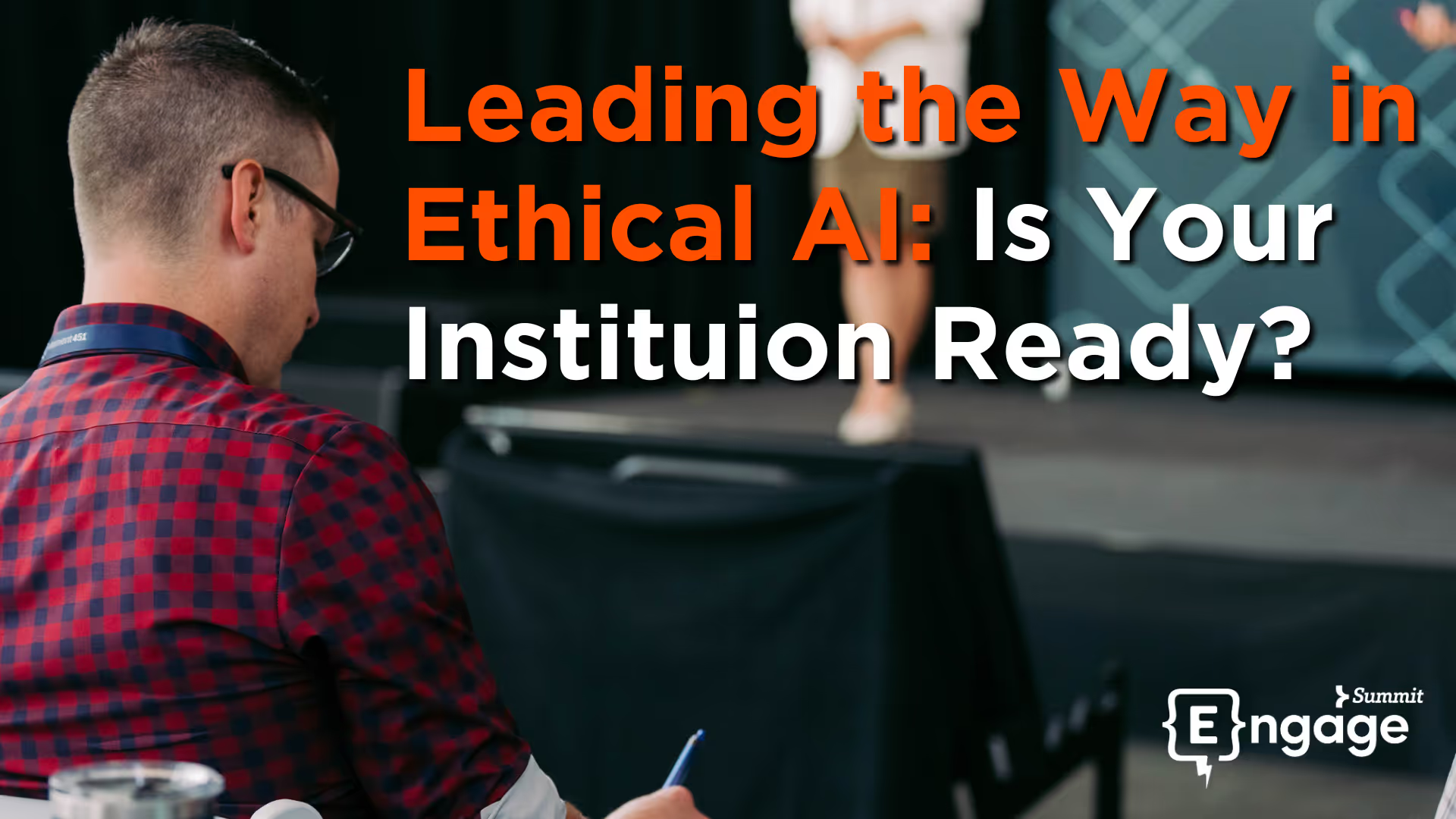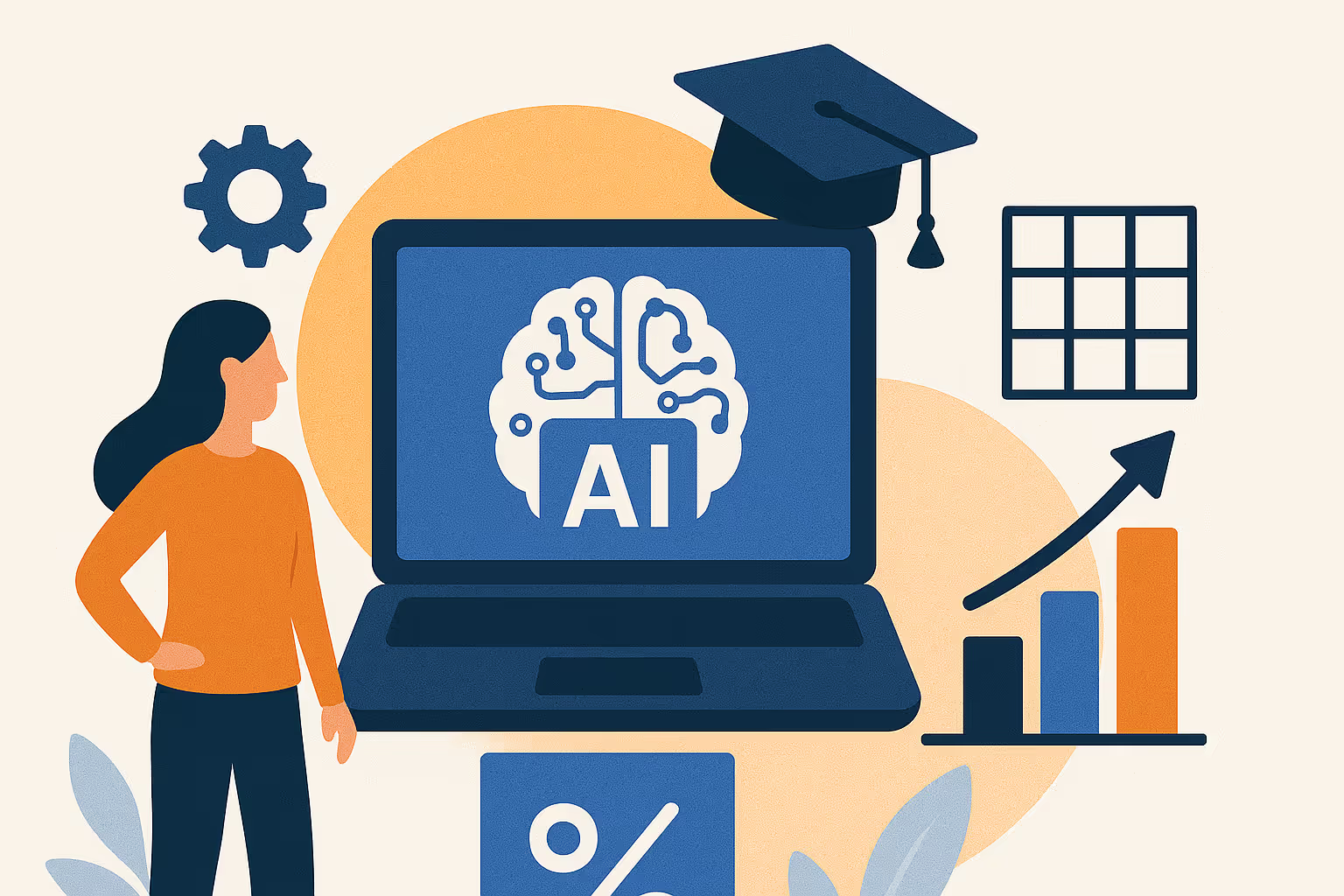About the Blog
As artificial intelligence (AI) becomes increasingly integrated into higher education, the responsibility of ensuring its ethical use falls largely on the shoulders of higher education professionals. Whether you’re working in marketing, admissions, or enrollment management, understanding the ethical dimensions of AI is crucial. Dr. Obi Ogbanufe, Assistant Professor at the University of North Texas, emphasized several key actions that higher education professionals can take to promote ethical AI usage within their institutions.
Understanding the Ethical Implications of AI in Higher Education
The first and most critical step in promoting ethical AI is recognizing that AI, while powerful and beneficial, can also cause harm. AI systems, if not properly monitored and controlled, can perpetuate biases, invade privacy, and make decisions that negatively impact students and staff. Acknowledging these potential risks fosters a culture of ethical awareness and responsibility within your institution. By understanding that no technology is neutral, higher education professionals can better anticipate and mitigate the possible negative effects of AI.
Listen to Dr. Obi Ogbanufe's episode of Higher Ed Pulse where she shares her insights on the crucial role of ethics in artificial intelligence, particularly within educational technology.
AI Literacy for Higher Ed Professionals: Empowering Informed Decision-Making
While you don’t need to be an AI expert, having a basic understanding of how AI works is essential. This literacy allows you to identify potential ethical issues before they become significant problems. For instance, knowing how AI models are trained and how data is collected can help you spot biases or data privacy concerns early in the process. Higher education professionals should seek to understand the fundamentals of AI, such as the principles of machine learning, data collection practices, and the common pitfalls of AI implementation. This knowledge empowers you to ask the right questions and make informed decisions about AI tools and systems.
Key Ethical Questions to Ensure Fair and Responsible AI Use
During the development or procurement of AI tools, it’s vital to ask the right ethical questions. For example, is the data used to train the AI model representative of your entire student population? Has the AI tool been audited for bias? These questions are not just technical concerns; they align with broader principles of AI ethics, including fairness, accountability, transparency, explainability, and privacy. By asking these questions, you help ensure that the AI tools being used are not only effective but also just and equitable.
Listen to Liz Gross chat with Mallory Willsea on Higher Ed Pulse about her measured insights on the integration and implications of AI in higher education, emphasizing the importance of ethical practices and maintaining the human element in academia.
Crafting an AI Code of Ethics That Reflects Institutional Integrity
Institutions should have a clear and enforced AI code of ethics that outlines the standards AI tools must meet. This code should reflect the institution's values and ensure that all AI-driven initiatives adhere to principles of fairness, accountability, and transparency. Developing an AI code of ethics provides a framework for evaluating and guiding the development and deployment of AI technologies within the institution. It also offers a foundation for addressing any ethical concerns that arise, helping to protect both the institution and its stakeholders.
Listen to Dr. Ray Lutzky on Mastering the Next with Paul Mathers as they talk through the ethical dimensions of AI in admissions.
Proactively Addressing Ethical Considerations in AI Implementation
If you encounter an AI tool that is working in unexpected or harmful ways, it’s crucial to report these issues immediately. Early reporting allows for the timely resolution of problems before they escalate into larger issues that could damage the institution’s reputation or harm individuals. Whether the concern is related to bias, data privacy, or the overall functionality of the AI tool, raising these issues with the appropriate authorities or the tool’s vendor is an essential part of maintaining ethical standards. By doing so, you contribute to the continuous improvement of AI systems and help safeguard the interests of your institution and its community.
More From the Engage Summit
Don’t miss out on the full insights from the Engage Summit! Download the Engage Summit Sessions now and unlock the full potential of AI and data in your marketing strategies. These sessions are packed with practical examples, innovative ideas, and actionable takeaways specifically designed for higher education marketers and professionals.










